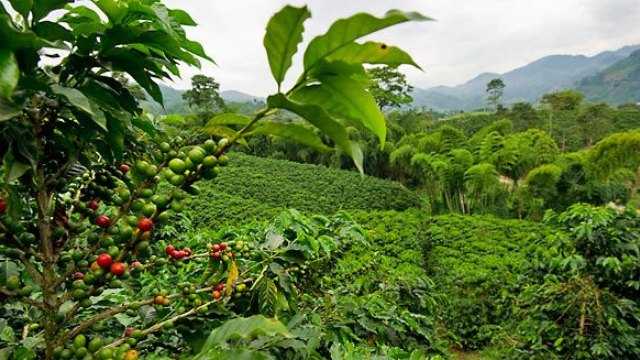Costa Rica has set itself the goal of becoming carbon neutral by 2021. To reach its ambitious climate targets, the country has put in place extensive strategies and action plans, including Nationally Appropriate Mitigation Actions (NAMAs) in a range of different sectors.
The government has identified the coffee sector as its first priority. Owing to the widespread use of nitrogen-based fertilisers and resource-intensive processing methods, this sector is responsible for 25 per cent of Costa Rica’s agricultural greenhouse gas (GHG) emissions, and nine per cent of its overall GHG emissions.
Coffee production is an integral part of the nation’s history and identity, and the sector is very well structured. Costa Rica is now seeking to become one of the first countries in the world to promote climate-smart coffee cultivation.
In view of the high production costs and the level of global competition, the economic sustainability of this endeavour will depend on superior quality, improved resource and cost efficiency, increased product differentiation and access to new markets.
Objective
Up to 6,000 Costa Rican coffee farmers and staff at 50 processing plants have the knowledge and technical skills to introduce and apply climate-smart cultivation and processing methods in their operations. Sustainability labels identify Costa Rican coffee as an environmentally and climate friendly alternative; the reduction in emissions thus leads to higher prices and increased demand for the end product.
Approach
The NAMA Support Project (NSP Café) supports climate-smart cultivation and processing of coffee in Costa Rica, for instance by providing advisory services, financing small and medium-scale investments and through technology transfer. In addition, it facilitates access to attractive financing options for the processing companies, enabling them to switch to eco-efficient equipment and processes. It also provides support with developing the market for ‘climate-friendly coffee’ as an innovative product.
The project is financed using funds from the NAMA Facility, a joint initiative of the German Federal Ministry for the Environment, Nature Conservation, Building and Nuclear Safety (BMUB) and the UK Department for Business, Energy and Industrial Strategy (BEIS). The Facility provides financial support for particularly ambitious nationally appropriate mitigation actions (NAMAs) around the world.
GIZ is implementing the NSP Café project in collaboration with the Costa Rican Ministry for the Environment and Energy (MINAE), the Ministry for Agriculture and Livestock (MAG), the National Coffee Institute (ICAFE), and the Central American Bank for Economic Integration (CABEI). Good practices are collated, transferred to further areas of agricultural production, and disseminated for replication in other sectors and countries.
The project supports this voluntary action to mitigate climate change through the following five components:
- Use of good agricultural practices (GAPs) to reduce greenhouse gas emissions and promote the efficient application of fertilisers on coffee plantations
- Energy and resource efficiency in coffee processing: water, waste and energy
- Measuring, reporting and verification of CO2 reductions based on international standards
- Marketing of climate-friendly coffee and access to new markets
- Creation of a national climate fund for the coffee sector to promote investments in emissions-reducing technologies.
Results
In a series of workshops, some 3,000 coffee farmers have received training in all eight of Costa Rica’s coffee regions on how to apply ten sustainable agricultural practices, various of which are now used by farmers on their plantations.
These training courses were also attended by around 300 agricultural advisors from the national coffee institute ICAFE and the Ministry of Agriculture, which support coffee farmers in applying the new techniques. This is intended to guarantee the continued dissemination of such practices in the coffee sector once the project has ended.
Measures for coffee processing companies, so-called beneficios de café, have also been taken up with considerable interest: 50 companies have so far signed up to the project. They are currently working on calculations of their carbon and water footprints for the entire coffee processing procedure. Two participating companies have already been awarded climate-neutral status from the national Environment Ministry (MINAE).
Many companies also took part in a training scheme lasting several months that was designed to strengthen their marketing and sales capacities and enable them to position their climate-friendly coffee more effectively abroad.
A sales trip to Germany is being offered to five selected companies in October 2017; these companies will have the opportunity to visit and present their own coffee to German roasting houses.
An initial successful trip took place in late 2016, which resulted in a first company being able to launch its coffee on the German market. Costa Rican coffee aroused considerable interest at national level when it was introduced and sold – complete with new, innovative and appealing packaging and eco-label – at national trade fairs.

















